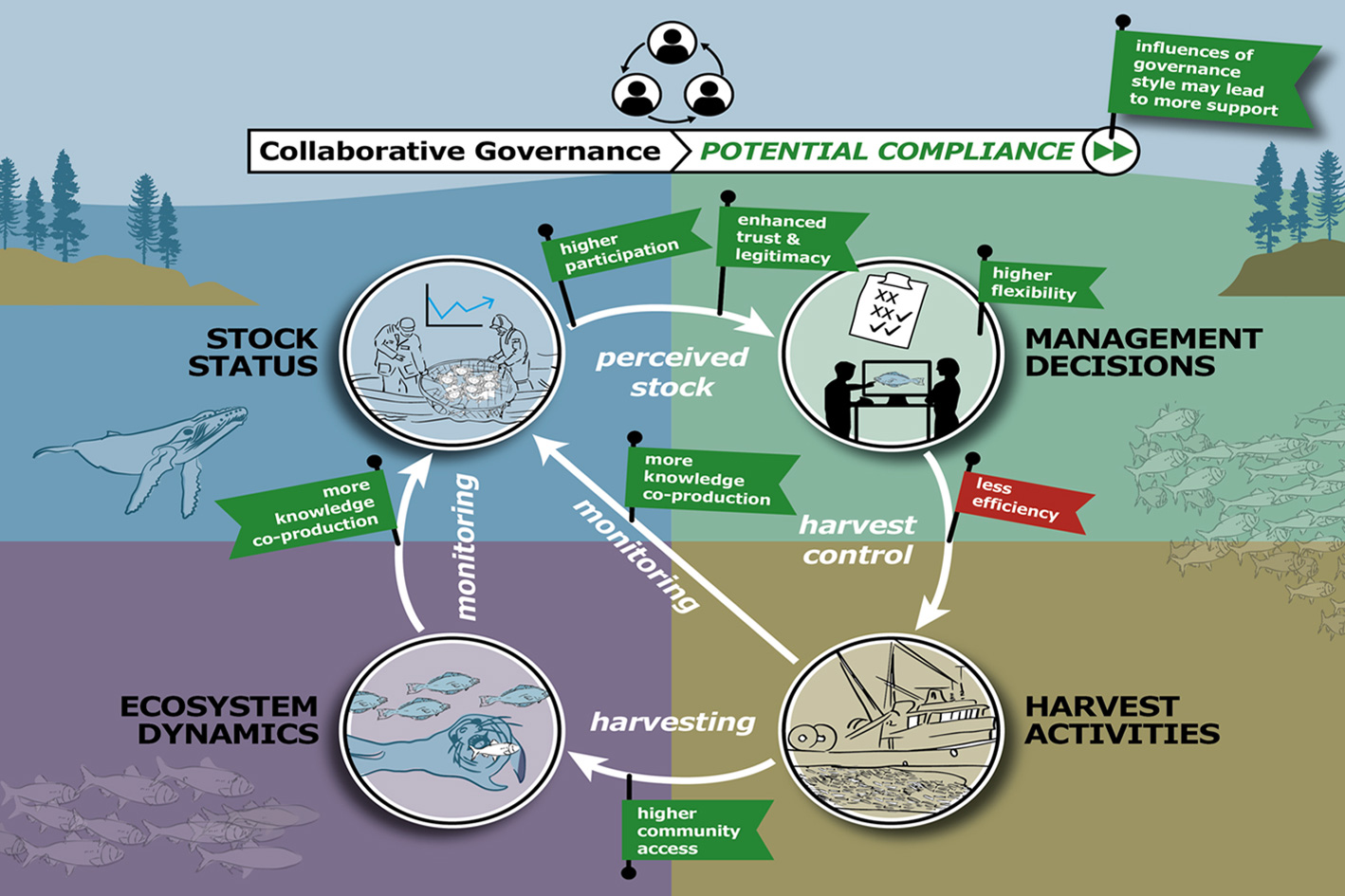
For resource managers charged with maintaining important assets like croplands or fisheries, quantitative modeling is a critical tool. But these sophisticated decision-support models often overlook an essential element of resource management: governance.
In a new study, an interdisciplinary team of scientists, experts and stakeholders, including a biologist from Florida State University, shows that discounting factors of governance could fundamentally compromise the models officials rely on to inform sound resource management strategies.
The team's findings, published in the journal Bioscience, suggest integrating attributes of governance into quantitative assessments can help decision makers develop more nuanced and dynamic natural resource management programs.

"As scientists, we often focus on our models, our biological knowledge or our expectations of economic rational actors," said FSU Assistant Professor Daniel Okamoto, who led the modeling component of the research. "Yet in this study, we highlight how important it can be to consider how governance systems can create breakpoints or even undermine intentions of management strategies."
In the study, Okamoto and his colleagues used two proxy attributes - compliance and inertia - to model the effects of governance on resource management evaluation. Compliance refers to the extent to which individuals abide by agreed-upon rules, and inertia signifies the failure of managers to adapt their rules in response to new information or changing conditions.
These straightforward, easily modeled elements allowed researchers to illustrate how even seemingly minor aspects of governance can change expectations about the performance of management strategies for natural resources.
The team applied this streamlined governance framework to a simplified model of a Pacific herring fishery in Haida Gwaii, British Columbia. Their goal was to demonstrate the ways integrating compliance and inertia can change the outputs of management strategy evaluations.
Those changes, researchers found, were quite dramatic. For example, increasing inertia and decreasing compliance in their simulations led to a marked uptick in fishery closures and modest gains in annual variability of catch. Results also showed that declining compliance and elevated inertia translated into surges in overall catches, and ultimately to an increase in the frequency of fishery collapse.
The team said their models show economic outcomes are not always the best indicator for management evaluation. A scope limited to economic efficiency can disguise the costs and benefits of vital governance attributes, like building trust among involved parties, equity across groups and capacity for adaption, they said.
"Our ecosystem-based approach will help us address the overly sectoral approaches to fisheries management that currently exist, which don't reflect the reality of our interconnected and rapidly changing oceans and coasts, or the multiple objectives fisheries managers must accommodate - ecological, social and economic," said lead author Derek Armitage, professor in the School of Environment, Resources and Sustainability and co-lead of the Environmental Change and Governance Group at the University of Waterloo.
"The paper contributes to an emerging conversation among academics and practitioners about the strengths and limits of science in environmental decision making and the need for systematic attention to social context, institutions and history in policy and implementation processes," added University of Guelph Associate Professor Jennifer Silver, who helped lead the study.
Okamoto said that ecologists sometimes think their efforts to maintain sustainable ecosystems are hamstrung by political considerations, unpredictable behavior and economic limitations. He considers this study a call to incorporate an array of specialists, particularly experts in governance, early in the process of evaluating resource management strategies.
"In our case, we were a team of ecologists, modelers, governance experts, social scientists, fishers, managers, and leaders in indigenous communities," he said. "Approaches such as ours are not easy, but they are essential if realistic progress is to be made in management of ecological systems."
This research was conducted through the Ocean Modeling Forum, a collaboration between the University of Washington and the National Oceanic and Atmospheric Administration Fisheries. The study was funded by the David and Lucile Packard Foundation and the Pew Charitable Trusts.






